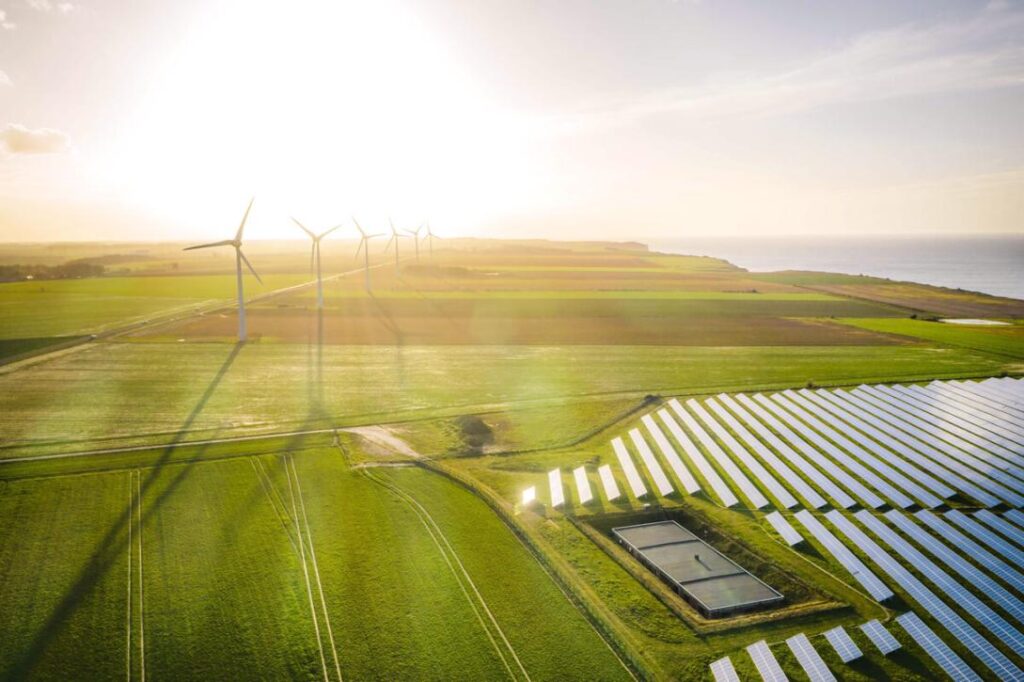The Western Balkans, which include Albania, Bosnia and Herzegovina, Kosovo[1], Montenegro, North Macedonia, and Serbia, face significant environmental and energy challenges. As the region moves toward economic and political integration with the European Union (EU), two key priorities have emerged: transitioning to a green economy and ensuring energy security through renewable energy sources. Both goals are essential for sustainable development, reducing dependence on fossil fuels, and meeting global climate commitments (Ministry of Foreign Affairs, 2024).
For decades, the Western Balkans have relied heavily on coal and other fossil fuels, leading to high carbon emissions, air pollution, and environmental degradation. Many coal plants in the region are outdated and highly polluting, contributing to poor air quality and serious health issues for local populations. Despite international pressure and commitments to reduce emissions, coal still accounts for a significant share of electricity production in the region (Sanders, 2024).
Transitioning to a green economy means shifting away from coal and toward renewable energy sources such as hydropower, wind, and solar power. However, this transformation is far from easy. It requires substantial investments in modern energy infrastructure, policy reforms, and strong regional cooperation. Additionally, the transition must balance environmental goals with economic realities, as thousands of jobs in the coal industry could be lost if changes are not managed properly.
The European Green Deal and the Green Agenda for the Western Balkans, introduced by the EU, offer a roadmap for the region’s environmental transition. These initiatives aim to align Balkan environmental policies with EU standards, providing financial and technical support for green energy projects. While these policies represent a step forward, challenges such as bureaucratic delays, corruption, and political instability continue to slow down progress (Carnegie Endowment, 2023).
Energy security is another major concern for the Western Balkans. Many countries in the region remain dependent on imported fossil fuels, making them vulnerable to price fluctuations, geopolitical instability, and supply disruptions. This issue has become even more urgent following recent global energy crises, which highlighted the risks of over-reliance on external energy sources.
To reduce dependence on foreign energy imports, the Western Balkans must invest in domestic renewable energy projects. The region has significant potential in hydropower, wind, and solar energy, but progress has been slow. While hydropower currently provides a large share of the region’s electricity, it is not without controversy. Many hydropower projects have faced opposition due to concerns over environmental damage, biodiversity loss, and water management issues (Bankwatch, 2019).
Wind and solar energy remain underdeveloped despite the region’s favorable climate conditions. Expanding these sectors could improve energy security while reducing carbon emissions. However, investment in renewables faces obstacles such as regulatory uncertainty, inadequate infrastructure, and limited access to financing. Without clear policies and incentives, private investors remain hesitant to commit to large-scale renewable projects (Vladimir Spasić, 2024).
Another challenge is the fragmented energy market in the region. Countries in the Western Balkans often operate isolated energy grids, making it difficult to trade electricity efficiently. Strengthening cross-border energy cooperation and integrating the region’s energy market with the EU could help improve energy security and boost investment in renewables (Michael Hochberg, 2024).
The green transition and energy security are interconnected challenges that require coordinated action at the national and regional levels. The Western Balkans must adopt long-term energy strategies that prioritize renewables, phase out coal, and improve energy efficiency. Governments should also focus on attracting investment in clean energy projects by offering financial incentives and reducing bureaucratic obstacles (Energy Press, 2023).
Regional cooperation will be crucial. The Western Balkans should work together to create a common energy market, improve electricity grid connections, and facilitate the trade of renewable energy. The European Union plays a crucial role in supporting this transition, offering financial aid through programs like the Just Transition Mechanism and the Western Balkans Investment Framework. However, implementation ultimately depends on national governments taking decisive action (European Investment Bank, 2010).
While the road ahead is challenging, the shift to a sustainable energy system presents significant economic and environmental opportunities. By embracing renewables and energy efficiency, the Western Balkans can build a cleaner, more resilient, and energy-secure future for the region.
References:
- Bankwatch . 2019. “Western Balkans Hydropower: Who Pays, Who Profits? – Bankwatch.” Bankwatch. October 9, 2019. https://bankwatch.org/publication/western-balkans-hydropower-who-pays-who-profits.
- Carnegie Endowment. 2023. “The Green Transition and the Western Balkans.” Carnegie Endowment for International Peace. 2023. https://carnegieendowment.org/research/2023/10/the-green-transition-and-the-western-balkans?center=europe&lang=en.
- Energy Press . 2023. “Balkan Potential Highlighted by IPTO’s Interest in MEPSO | ENERGYPRESS.” Energypress.eu. 2023. https://energypress.eu/balkan-potential-highlighted-by-iptos-interest-in-mepso/.
- European Investment Bank. 2010. “The European Investment Bank in the Western Balkans” 25: -. https://doi.org/.
- Michael Hochberg. 2024. “Renewables Offer Opportunity in the Western Balkans. But Challenges Remain.” Atlantic Council. September 27, 2024. https://www.atlanticcouncil.org/blogs/energysource/renewables-offer-opportunity-in-the-western-balkans-but-challenges-remain/.
- Ministry of Foreign Affairs . 2024. “Δυτικά Βαλκάνια – Ελληνική Δημοκρατία – Υπουργείο Εξωτερικών.” Ελληνική Δημοκρατία – Υπουργείο Εξωτερικών. June 18, 2024. https://www.mfa.gr/exoteriki-politiki/perifereiaki-politiki/dytika-valkania/.
- Sanders, Eva. 2024. “Balka-Seltzer: How to Avoid Excess Gas in the Western Balkans.” ECFR. European Council on Foreign Relations (ECFR). December 20, 2024. https://ecfr.eu/publication/balka-seltzer-how-to-avoid-excess-gas-in-the-western-balkans/.
- Vladimir Spasić. 2024. “Western Balkans Have as Many Prospective Solar, Wind Projects as Germany.” Balkan Green Energy News. July 17, 2024. https://balkangreenenergynews.com/western-balkans-have-as-many-prospective-solar-wind-projects-as-germany/.
[1] This designation is without prejudice to positions on status, and is in line with UNSCR 1244/1999 and the ICJ Opinion on the Kosovo declaration of independence.








